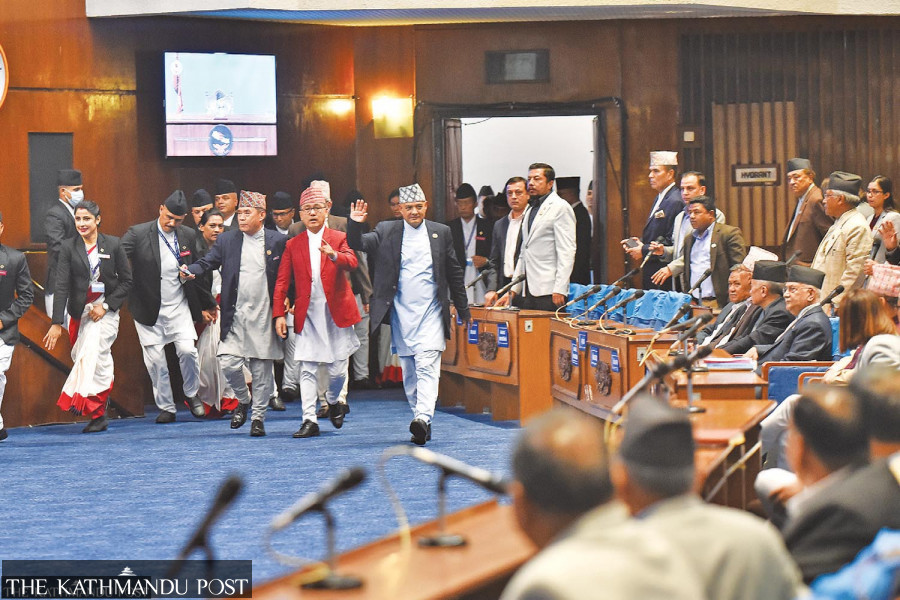Editorial
Play by the rules
The parliament is not a place where you try to beat your opponents with brute force.
The CPN-UML is infamous for obstructing House proceedings, and for record times. In the case of the Maoists, they have been involved in such unruly acts as trying to snatch away the budget briefcase from the then finance minister Surendra Pandey in 2010. Over the years, people have gotten to witness lawmakers scuffling with marshals, breaking chairs and tables and hurling objects at the Speaker on the House floor.
For the UML, which has always been a big presence in Nepal’s post-1990 parliaments, House obstruction appears to be the easiest way to put pressure on the government. The party set a record for Nepal’s longest House obstruction by continuously blocking its proceedings for five weeks in early 2000. Over two decades later, in 2021, the party was at it again, this time obstructing the House against the then Speaker Agni Sapkota’s decision not to suspend 14 lawmakers who quit UML to form CPN (Unified Socialist). The obstruction ended only after eight months. The second-largest party is once again hindering the proceedings of both the Houses, demanding the prime minister's resignation over his recent remarks.
Prime Minister Pushpa Kamal Dahal, while addressing a function, had appreciated transport entrepreneur Sardar Pritam Singh’s efforts to make him prime minister. “He [Singh] visited Delhi many times to make me prime minister. He carried out multiple meetings with politicians and friends for the same purpose,” Dahal had said.
The opposition parties—the CPN-UML, the Rastriya Swatantra Party and the Rastriya Prajatantra Party—have been protesting against the prime minister's statement, saying it is tantamount to saying that New Delhi decides who becomes Nepal’s prime minister, thereby undermining the sovereignty of the parliament that elects the government head. While the RSP and the RPP have sought clarification from Dahal, the UML is adamant that he resigns. Dahal, as we have written in this space before, should get a chance to have his say and perhaps to apologise to the Nepali people for his regrettable remarks.
The parliament is the right place for parties and individual lawmakers to raise vital issues when the government or any of its officials makes a mistake. There is also nothing wrong in trying to make the prime minister accountable for his words. But the House is meant for rigorous debates and deliberations based on facts, figures and logic. It is not a place where you try to beat your opponents with brute force—which is precisely what the UML is doing.
This is the case even though there has not been a single instance where obstructing the parliament has resulted in any meaningful benefit for the common people. Rather, such obstructions have always hampered vital lawmaking—for instance the plan to endorse a bill to replace the ordinance on loan shark was foiled due to the UML’s latest House obstruction. If our political parties are not careful about how they conduct themselves in the parliament, public frustration with parliamentary democracy will only grow. If that happens, it will be traditional parties like the Congress and the UML that stand to lose the most. When the parliament is discredited, so will its supposed custodians.




 18.12°C Kathmandu
18.12°C Kathmandu














